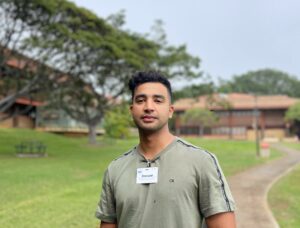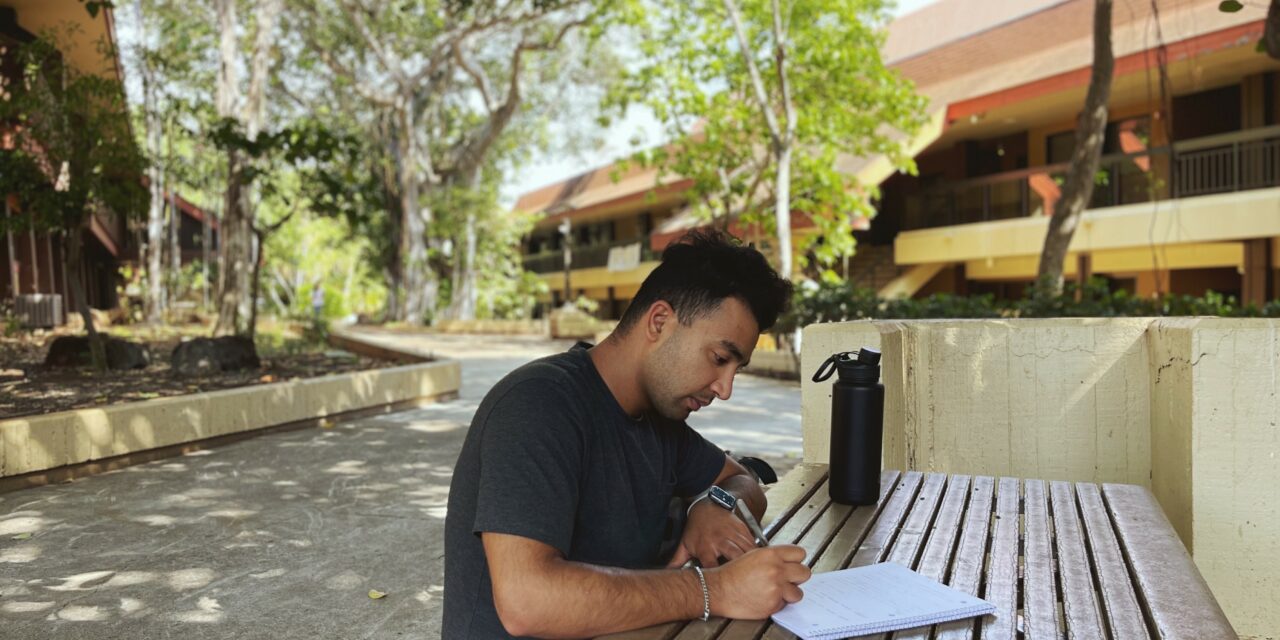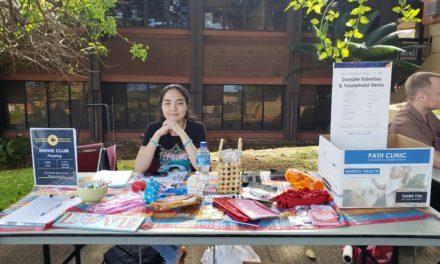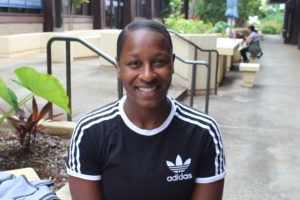Mohammad Sherzad came to the U.S. from Afghanistan to pursue his studies in Information Technology. (Photo by Juri Dagio)
By Juri Dagio | Staff Writer
In 2020, at the age of 19, Mohammad Sherzad started studying at a university in Kandahar, Afghanistan while working as a teaching assistant at the U.S. embassy. He was recognized for his dedication to helping fellow students and was appointed to work assisting them in learning English and finding job-related resources. It was his commitment that landed him an opportunity to work and study in the U.S. in 2021.
He has now been in the U.S. for three years.
“No one wants to be away from their home country,” he said. “I’m missing home, I’m missing all my relatives there, missing my parents, and my friends that I had for years and years. I have to stay here … there are some situations where you have to be away.”
Sherzad, who is now 22 years old and majoring in Information Technology at Kapi’olani Community College, felt that he had to leave Kandahar to pursue a better life. While many of his friends have already graduated from college, they are either unemployed or working in shops and markets. Unemployment is a concern to him, and he is afraid he might not be able to fulfill his dreams there.
He worked for an American embassy for two years and was thereafter allowed to reside in the U.S.
“Back home, there are projects, programs, and organizations that were supported by the U.S. embassy, so I was working there,” he said. “The U.S. embassy provided me with an opportunity because I was part of the embassy.”

Mohammad Sherzad in January 2024. (Photo by Juri Dagio)
In 2021, Sherzad was taken to Philadelphia, Pennsylvania. It was his first time in the United States. He had to undergo procedures such as background checks and interviews. He was asked to stay near a military base for four months before he arrived in Hawaiʻi in July of the same year.
“I had other choice(s) too,” he said. “But as I did some research about Hawai’i, I saw this kind of golden opportunity for me to study in Hawai’i.”
“Girls are not allowed to work, not allowed to study, girls can’t own their businesses,” he said.
Sherzad expressed his concern about returning home during the interview. Throughout his responses, he conveyed his nervousness and uncertainty about discussing sensitive topics associated with Afghanistan. In spite of this concern, Sherzad radiates a humbling energy that is full of hope for the future. He plans to transfer to University of Hawai’i at Mānoa to earn a bachelor’s degree in information technology. It is his goal to become a technician.
“When I was 15 years old, I was doing some technician works,” he said. “I was fixing my phone, my parents’ phones. Also, our neighbors, they’ll bring their phones or their computers to me.”
At a young age, Sherzad gained experience and knowledge about the field by repairing phones and computers. He then became confident that he would have a good career in information technology.
“For summer vacation, I try to build some projects to work on,” he said. “Like creating applications and creating websites.”
He is well aware that he faces a broad future ahead of him, given the opportunity to study in the U.S. Depending on his education progress, he wants to continue his higher education here in Hawai’i — eventually returning home to Kandahar with his diploma as a technician.






